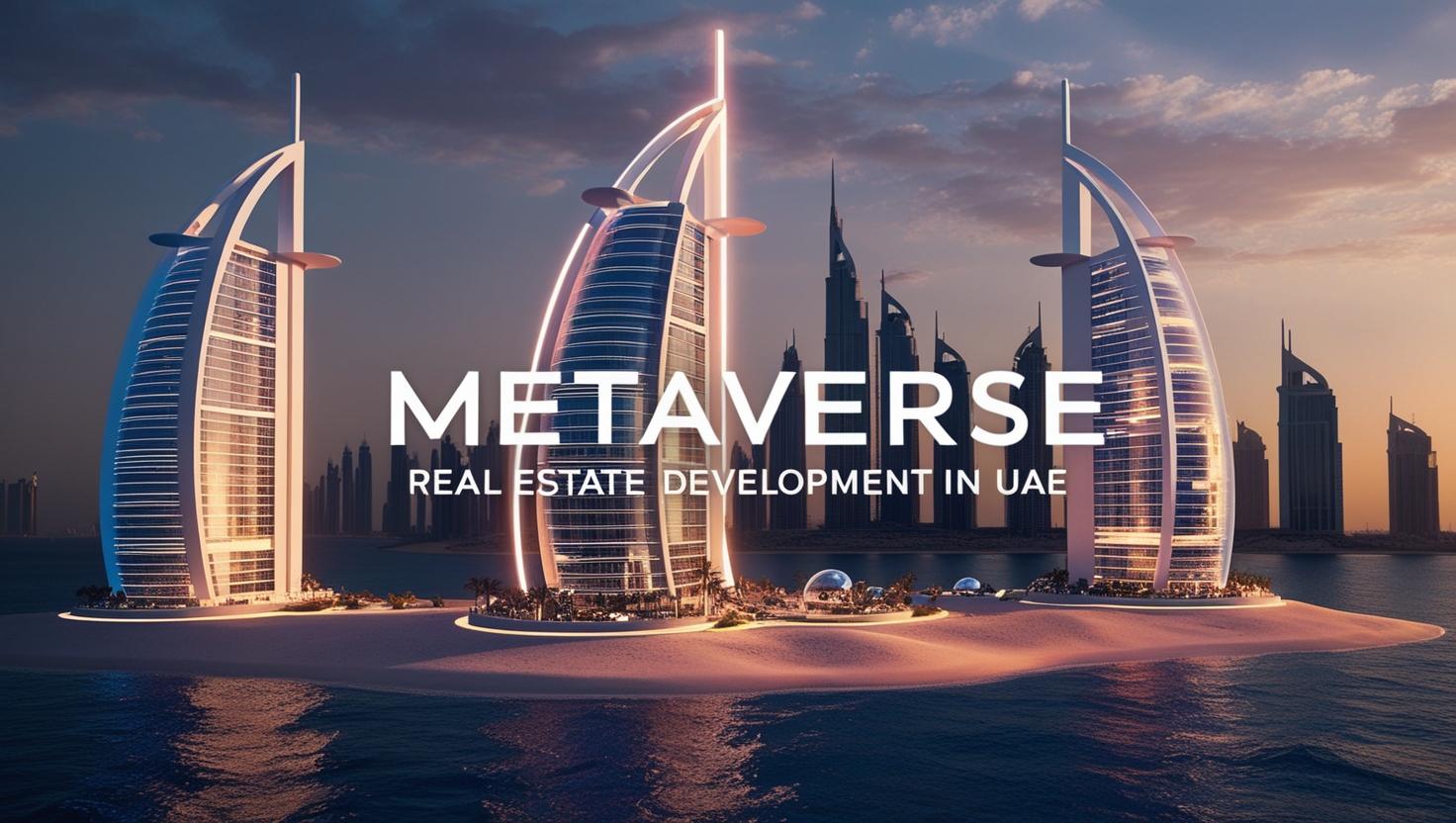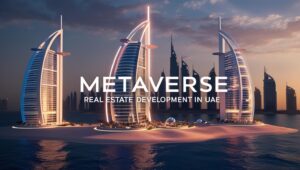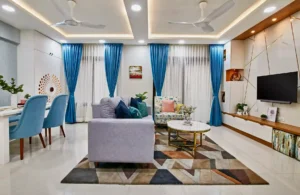Why the UAE is Leading the Global Boom in Metaverse Real Estate Development
The United Arab Emirates (UAE) has long been at the forefront of innovation, embracing cutting-edge technologies to position itself as a global leader in various industries. In recent years, metaverse real estate development in UAE has gained significant momentum, with the country investing heavily in virtual property, blockchain integration, and Web3 technologies. As global interest in digital real estate surges, the UAE’s strategic approach is setting new benchmarks for how nations can leverage the metaverse to drive economic growth.
This article explores how the UAE is leading the global metaverse real estate boom, analyzing the key drivers behind its success and what it means for the future of digital property.
The UAE’s Vision for a Metaverse-Driven Future
The UAE government has been proactive in embracing digital transformation, with Dubai’s Metaverse Strategy and Abu Dhabi’s blockchain initiatives playing a crucial role in shaping the region’s approach to virtual real estate. The country’s leadership recognizes the potential of the metaverse in redefining urban planning, tourism, retail, and even governance.
The UAE’s digital economy strategy aligns closely with the development of smart cities, where blockchain technology ensures secure transactions and AI-driven virtual spaces enhance user experience. With a firm commitment to becoming a hub for metaverse innovations, the UAE is attracting global investors, tech companies, and entrepreneurs looking to capitalize on the growing demand for virtual property and immersive digital spaces.
How Metaverse Real Estate Works: A New Era of Digital Property
Metaverse real estate refers to virtual land, buildings, and assets existing within digital environments powered by blockchain and decentralized technologies. Unlike traditional real estate, metaverse properties exist in virtual worlds like Decentraland, The Sandbox, and Somnium Space, where users can buy, sell, and develop land using cryptocurrencies and NFTs.
Key Features of Metaverse Real Estate:
- Ownership through Blockchain – Users gain verifiable ownership of digital land through non-fungible tokens (NFTs) stored on a blockchain.
- Virtual Commerce & Development – Businesses and individuals can build digital storefronts, event spaces, and interactive experiences within the metaverse.
- Decentralized Transactions – Smart contracts ensure secure, automated, and trustless transactions without intermediaries.
- Scalability & Interoperability – Virtual assets can be used across multiple metaverse platforms, creating an interconnected digital economy.
With these features in place, UAE-based investors, developers, and enterprises are leveraging the metaverse as an extension of physical real estate and commerce, unlocking a new era of digital opportunities.
Why the UAE is Dominating Metaverse Real Estate Development
1. Government-Backed Metaverse Initiatives
One of the biggest factors driving the UAE’s leadership in metaverse real estate is government support. The Dubai Metaverse Strategy, launched in 2022, aims to create 40,000 virtual jobs by 2030 and add $4 billion to the UAE’s economy.
Key initiatives include:
- Dubai’s Virtual Asset Regulatory Authority (VARA), the world’s first government entity operating entirely in the metaverse.
- The Emirates Metaverse Strategy, focused on integrating metaverse solutions into government services, tourism, and business operations.
- Blockchain-powered land registries, ensure secure property ownership and reduce fraud in virtual real estate transactions.
2. A Thriving Crypto and Blockchain Ecosystem
The UAE is one of the most crypto-friendly nations in the world, with clear regulations supporting Web3 startups, NFT marketplaces, and decentralized finance (DeFi) projects. This regulatory clarity attracts global blockchain companies looking for a stable environment to develop metaverse-based real estate ventures.
Major blockchain projects and crypto exchanges like Binance, Crypto.com, and Bybit have already set up operations in the UAE, further boosting its position as a hub for metaverse development.
3. Luxury & High-Profile Real Estate Investments
The UAE’s luxury real estate market is synonymous with high-end developments, iconic skyscrapers, and exclusive communities. This luxury-driven mindset has seamlessly transitioned into the metaverse real estate sector, where Dubai-based companies are investing millions in digital properties.
Recent examples include:
- DAMAC Group launching luxury digital real estate ventures within the metaverse.
- Dubai’s real estate firms partnering with Decentraland to sell virtual properties alongside physical counterparts.
- NFT-based villa sales allowing investors to own digital twins of real-world mansions.
4. Global Business & Tourism Hub
Dubai and Abu Dhabi are already established as global business and tourism destinations, and now they are extending these industries into the metaverse.
- Virtual tourism experiences in the metaverse allow people to explore landmarks like Burj Khalifa and the Palm Jumeirah in immersive 3D environments.
- Metaverse shopping malls bring luxury brands into the digital space, enhancing online retail experiences.
- Virtual corporate offices and events hosted in the metaverse enable businesses to operate in an entirely digital environment, reducing costs and increasing efficiency.
Challenges and Future Opportunities in UAE’s Metaverse Real Estate
Challenges:
- Scalability & Adoption – While metaverse adoption is growing, mass user engagement is still limited.
- Regulatory Complexities – Despite being crypto-friendly, there are still evolving regulations around virtual land ownership and NFT taxation.
- Infrastructure Requirements – Metaverse development requires advanced VR, AR, and AI-driven computing power, which is still evolving.
Opportunities:
- AI-driven real estate modeling to create hyper-realistic virtual cities.
- Integration with real-world assets, allowing users to buy metaverse properties linked to physical real estate.
- Expansion of smart contracts to enable seamless rental agreements and virtual property development.
Conclusion: The UAE’s Unmatched Role in Metaverse Real Estate
The UAE has positioned itself as the epicenter of metaverse real estate development, leveraging its tech-forward governance, blockchain ecosystem, and global business influence. By combining government support, luxury investments, and digital innovation, the country is leading the charge in shaping the future of virtual property markets.
As the metaverse continues to expand, the UAE’s proactive stance ensures it remains at the forefront of digital real estate, Web3 economies, and decentralized urban planning. Whether through NFT-powered skyscrapers or blockchain-driven smart cities, the UAE’s commitment to the metaverse is setting the stage for a future where virtual and physical real estate seamlessly coexist.
With its visionary leadership and pioneering investments, the UAE is not just participating in the metaverse revolution—it is defining it.
Read more here……………..













Post Comment